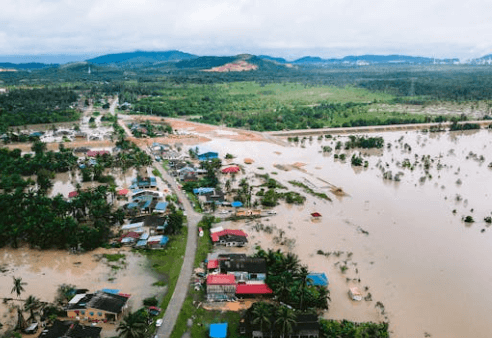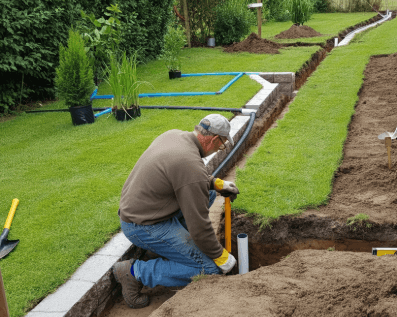Buying land in flood zones can be both exciting and challenging. Do you know that areas within a 100-year floodplain have a 1% annual risk of flooding, but over 30 years, that risk has increased to an astonishing 26%? Additionally, a single inch of floodwater can cause up to $25,000 in damages, highlighting the importance of understanding these risks. Whether you’re drawn to lower property prices or dream of owning waterfront land, making informed decisions is essential. Steve Daria and Joleigh, renowned real estate investors and land buyers for cash, specialize in navigating the complexities of land purchases in flood-prone areas. With their expertise, you can uncover effective strategies to mitigate risks while maximizing your investment. If you’re considering buying land in flood zones, connect with trusted professionals for tailored advice. Book a free, no-obligation discussion today and take the first step toward a confident investment.
Key Points
- Understand Flood Zone Designations: FEMA designates areas by flood risk, such as high-risk zones like Special Flood Hazard Areas. Knowing your zone helps you assess potential risks accurately.
- Evaluate Insurance Needs and Costs: Flood insurance can be expensive, with average premiums up to $888 annually. Factor this into your investment budget early on.
- Consider Long-Term Risks: Properties in 100-year flood zones face a 26% risk of flooding over 30 years. Even low-risk areas may experience unexpected flooding.
- Look Into Risk Mitigation Strategies: Elevating structures, using floodproof materials, and improving drainage can reduce damage risks. Research community flood management efforts as well.
- Work With Trusted Real Estate Experts: Seek guidance from specialists like Steve Daria and Joleigh, who understand the complexities of buying land in flood zones. Their insights can help you make informed and confident decisions.
What is a flood zone, and how is it determined?
A flood zone is an area classified based on its likelihood of flooding, determined by the Federal Emergency Management Agency (FEMA) using historical data, rainfall patterns, and topography.
These zones are mapped out on Flood Insurance Rate Maps (FIRMs) to show areas at high, moderate, or low risk of flooding.
High-risk areas, also known as Special Flood Hazard Areas, have at least a 1% chance of flooding each year and often require flood insurance for property owners.

Moderate to low-risk zones may carry less risk, but they still contribute to approximately 25% of all flood insurance claims.
When buying land in flood zones, it’s essential to review these FEMA maps to understand the specific risk of a property.
The designation of a flood zone can affect construction rules, insurance rates, and even resale value.
Flood zones can also change over time due to updated data or environmental factors.
This highlights the importance of thorough research when buying land in flood zones to avoid unexpected challenges and costs.
Get Started: Get Your Cash Offer Below…
We are direct land buyers. There are no commissions or fees and no obligation whatsoever. Start below by sharing where your property is and where we can send your offer…
How can I check if a property is in a flood zone?
To check if a property is in a flood zone, you can start by visiting FEMA’s Flood Map Service Center, which provides detailed flood zone maps for all areas.
These maps show if a property is in a high, moderate, or low-risk flood zone.
Enter the property’s address on the website to see its specific flood zone designation.
If you’re buying land in flood zones, this is a critical step to help you understand potential risks.
Along with FEMA maps, you can contact your local planning or zoning office to confirm flood zone classifications and any related regulations.
It’s also wise to consult with a land surveyor or a floodplain specialist for an in-depth risk assessment.
Flood zones can evolve over time as environmental conditions shift or new data becomes available.
To stay informed, always consult the latest maps. This proactive approach ensures you have accurate information when buying land in flood zones.
What are the risks of buying land in flood zones?
- Higher Flood Insurance Costs: Properties in flood zones often require flood insurance, which can significantly add to your overall expenses. Insurance costs are typically higher in high-risk areas, making it essential to factor this into your budget.
- Potential Property Damage: Land in flood zones is more likely to experience water damage from flooding events. This can lead to costly repairs, impacting your finances and the property’s usability.
- Limited Building or Development Options: Certain flood zones have strict rules about construction to minimize flood risk. You might face higher building costs or limitations on the type of structures allowed on the land.
- Lower Resale Value: Buyers may hesitate to purchase land in flood zones due to the associated risks and expenses. This might make it harder to sell the property later or force you to lower the asking price.
- Changing Flood Zone Designations: Flood zone maps can change over time as FEMA updates data or environmental factors shift. A property that wasn’t in a high-risk area before could suddenly become one, unexpectedly increasing your costs and responsibilities.
- Emergency Preparedness Challenges: Owning land in a flood zone means you need to be ready for emergencies. Having an evacuation plan, emergency supplies, and flood barriers can be challenging to set up and maintain, but they are essential for safety.
- Higher Maintenance Costs: Properties in flood zones often require more maintenance to protect them from water-related issues. Drainage systems, retaining walls, or landscaping changes can mean extra expenses to keep the land functional and safe over time.

How do flood zones impact property resale value?
Flood zones can greatly impact property resale value, often making it harder to sell land in these areas.
Buyers may be hesitant about the risks of flooding and the higher insurance costs of buying land in flood zones.
This hesitation can result in fewer offers and lower demand for the property.
Additionally, properties in high-risk flood zones often need costly updates like elevated structures or reinforced foundations, which can reduce profit margins.
If a flood occurs while you own the property, the damage can further decrease its value and make selling even more challenging.
Changing flood zone maps also adds uncertainty, as areas newly classified as high-risk could suddenly drop in value.
On the other hand, some buyers, like developers or investors, might have specific plans for flood-prone land, but this is less common.
Therefore, it’s crucial to carefully evaluate resale value before buying land in flood zones.
What factors should I consider before buying land in a flood zone?
1. Flood Risk Level
Check the property’s flood risk level using FEMA flood maps or local resources.
Properties in high-risk zones may require extra precautions and come with higher insurance costs.
Understanding the level of risk will help you prepare for potential challenges.
2. Insurance Costs
Flood insurance is often a requirement for land in flood zones, and premiums can be expensive in high-risk areas.
Compare costs for different properties to see how they fit within your budget.
Preparing for these added expenses is key when buying land in flood zones.
3. Building and Development Restrictions
Many flood zones have strict rules about construction to minimize flooding risks.
These regulations can limit the type of buildings you can construct or require costly adjustments, like elevating a structure.
Research local zoning laws to avoid unexpected surprises.
4. History of Flooding
Find out if the area has experienced floods in the past or is prone to certain flood patterns.
Frequent flooding can damage the property and increase the maintenance work needed.
This information is vital when evaluating whether the land meets your needs.
5. Future Flood Zone Changes
Flood zones can change over time because of new data or environmental shifts.
A property not currently in a high-risk zone could be reclassified in the future, increasing insurance rates and limitations.
Keep this in mind as you consider the land’s long-term suitability.
What steps should I take to prepare for potential flooding?
Preparing for potential flooding requires proactive steps to safeguard your property and ensure your safety.
Start by knowing your property’s flood risk, which you can find on FEMA’s flood maps.
If you live in or are considering buying land in flood zones, consider investing in flood insurance to cover potential damages.
Create an emergency plan for yourself and your family, including evacuation routes and a supply kit with essentials like water, food, and medications.
Elevate critical utilities like electrical systems, water heaters, and furnaces to reduce potential damage.
Keep drains and gutters clear to prevent water backup, and consider installing barriers or retaining walls for added protection.
Regularly stay updated on weather alerts and flood warnings to act quickly if needed.
For expert advice on navigating these decisions, reach out to Steve Daria and Joleigh, seasoned real estate investors and land buyers for cash, who can offer valuable insights and assistance.
**NOTICE: Please note that the content presented in this post is intended solely for informational and educational purposes. It should not be construed as legal or financial advice or relied upon as a replacement for consultation with a qualified attorney or CPA. For specific guidance on legal or financial matters, readers are encouraged to seek professional assistance from an attorney, CPA, or other appropriate professional regarding the subject matter.
